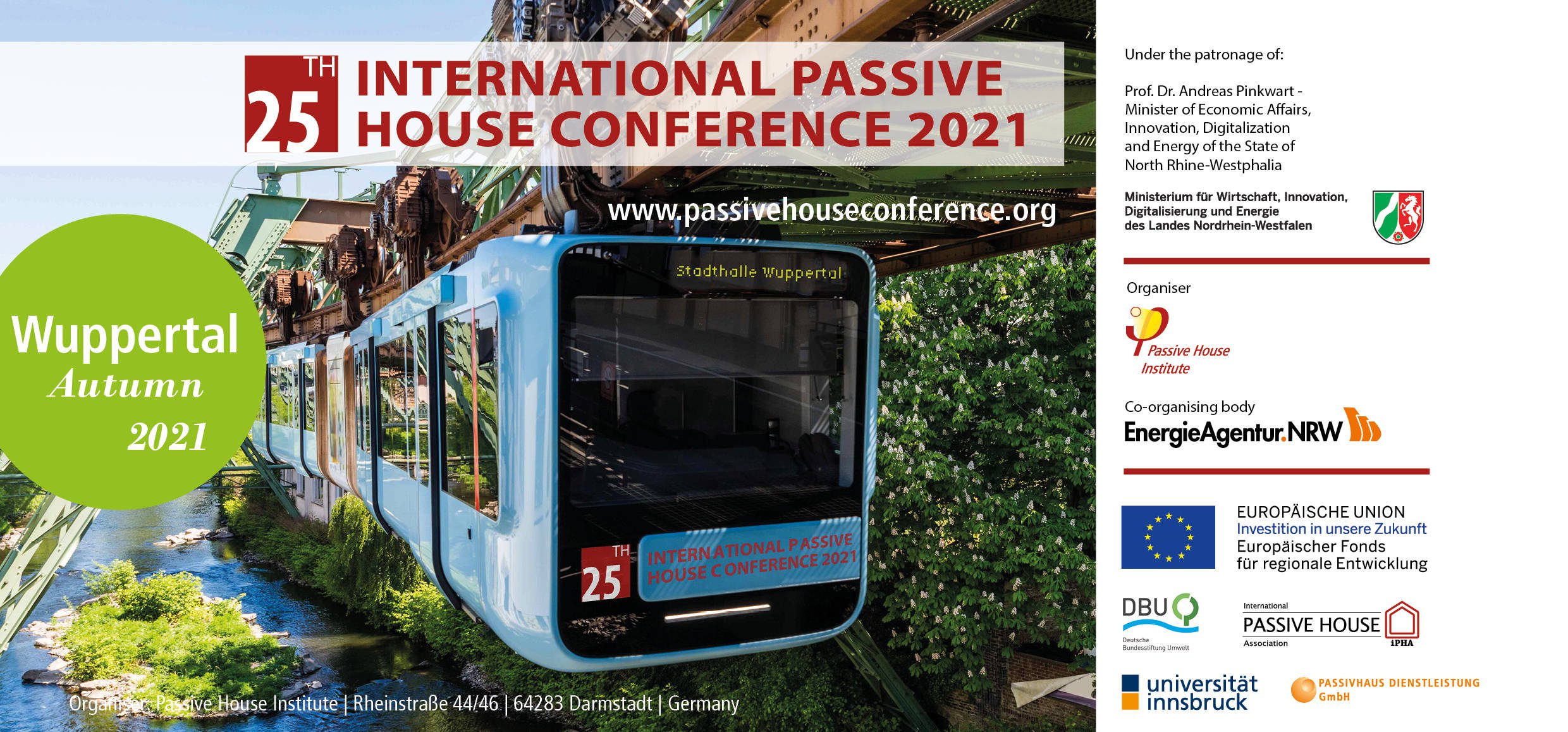
... conveyed the conference: deep energy retrofits need to be carried out on a broader scale, and construction practices must exceed the mostly inadequate code requirements for energy efficiency.
This year the participants shared their praise for the 24th International Passive House Conference in the chat window as the conference was held as an virtual event for the first time on account of the COVID-19 pandemic. More than 800 participants from 40 nations tuned in and listened to the lectures on energy efficient construction and retrofit solutions from their own screens. The virtual Passive House Café was open
24/7 for international networking.
We are happy to look back to scientific lectures, building tours and the accompanying informative trade exhibition in online format. Thanks to all speakers, poster presenters, exhibitors as well as to our partners and supporters and last but not least to all of you who participated in our 24th International Passive House Cnference!
In the opening plenary of the 24th International Passive House Conference the climate reseacher Prof. Stefan Rahmstorf explains that we have been already known for a long time that humans can have an impact on the climate and that we have to rapidly reduce emmissions worldwide. The relevance of the Passive House standard for climate protection was illustrated by Wolfgang Feist. He built the world's first Passive House building in Darmstadt exactly 30 years ago, in the autumn of 1990. Feist explained that "due to their low energy demand, Passive House buildings are a basic prerequisite for supplying buildings entirely with renewable energy. With this, the energy transition in the building sector can be successful. A healthy living environment is an added major advantage for occupants of a Passive House building".
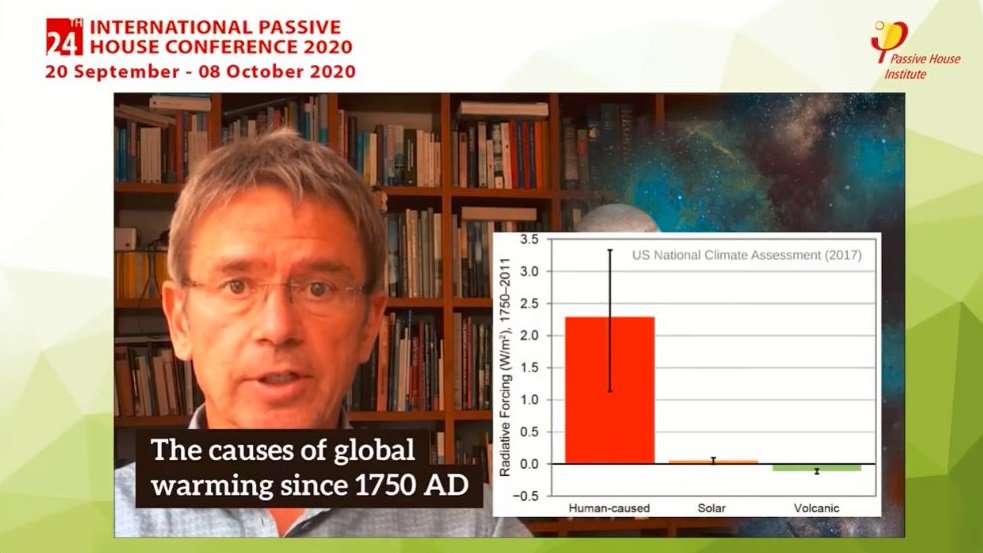
A workshop emphasized that the Passive House standard should play a more prominent role in social housing construction. Projects from Tyrol, Darmstadt, Hamburg and Berlin have proven that with the Passive House standard, social housing construction can be realised in a cost-effective, energy efficient manner that can also be visually attractive.
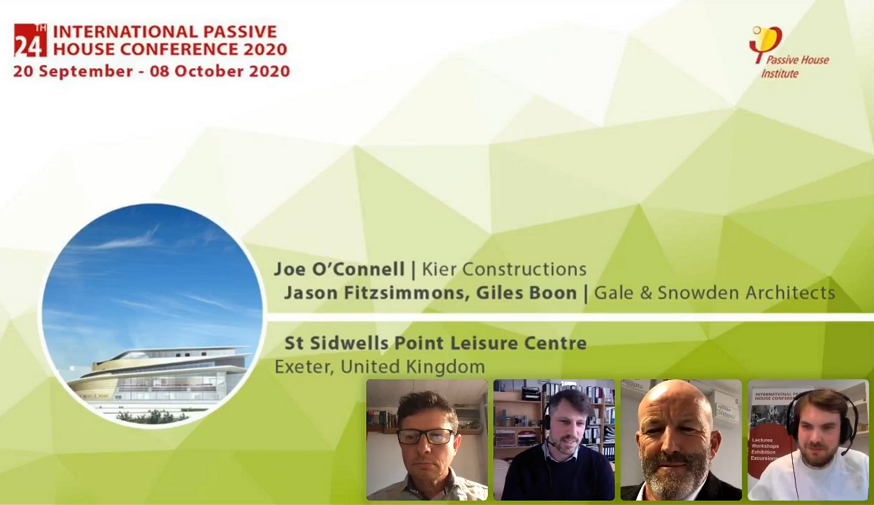
In terms of content, the lectures on energy efficient construction and retrofits spanned the entire globe. The participants learned about impressive Passive House projects in Germany and Europe, North America, Australia and New Zealand as well as in China, Thailand, India and Saudi Arabia. They prove that passive houses can be build in all climates.
Virtual building tours invited visitors to view many projects. "Passive House buildings can be built in all climates. They function well at minus 45 degrees Celsius in the polar regions and at 37 degrees Celsius in Bangkok. Every participant could get to know a large range of projects, this was surely an advantage of this virtual conference.
The first key message of the conference: Construction activities at the international level need to be placed even more strongly on energy efficient retrofits. Many speakers, including some from Tyrol, Glasgow, Vancouver and the US state of Washington pointed out that new builds are now only possible to a limited extent due to the shortage of building land. Connected to this, they presented numerous retrofit projects which had drastically reduced their energy demand with renovation to the EnerPHit standard. For Monte Paulsen, a Passive House expert in the Canadian Province of British Columbia, “swiftrefurbishment of existing buildings in the industrialized nations is among the top priorities for survival of civilization on this planet".
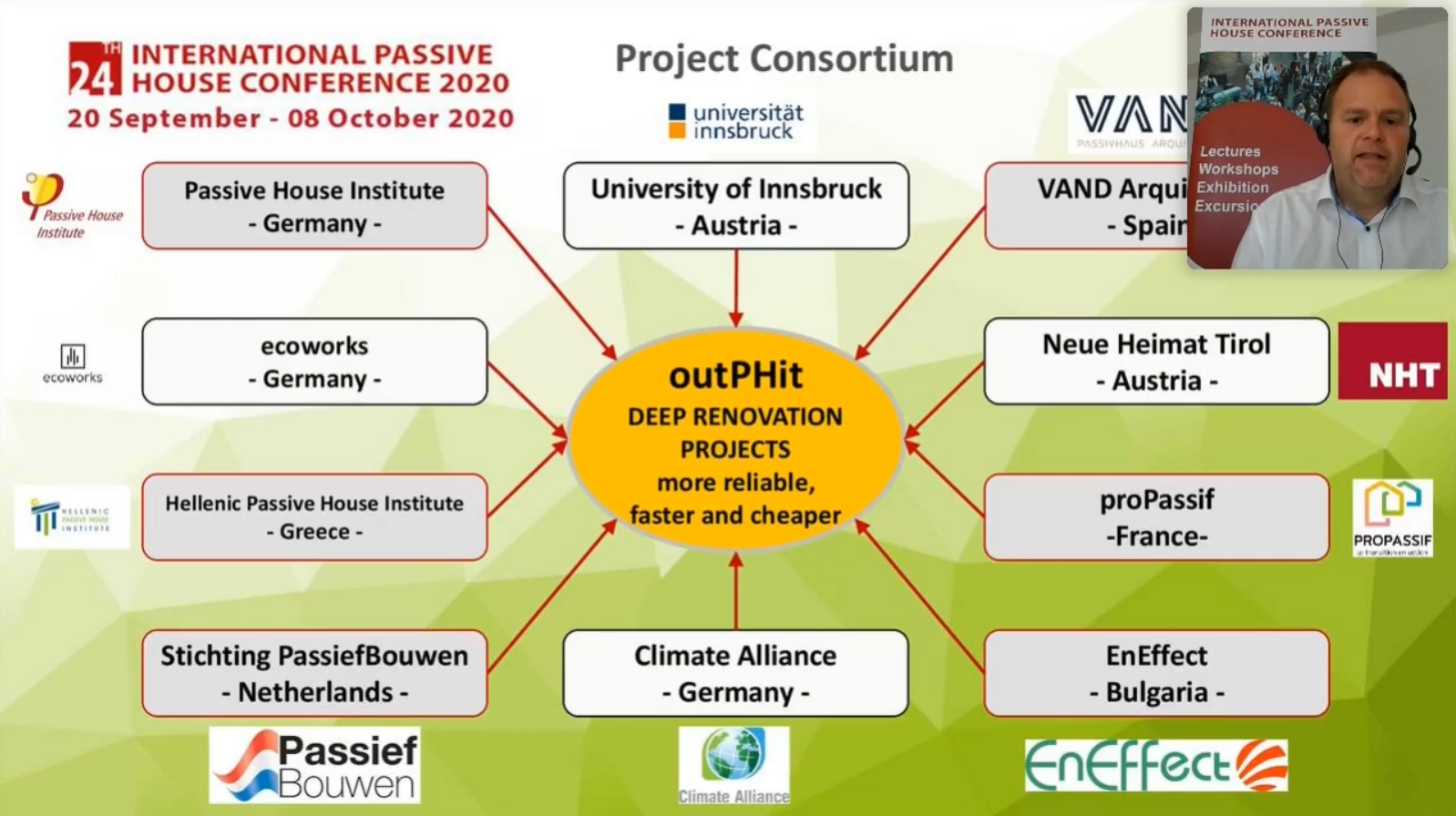
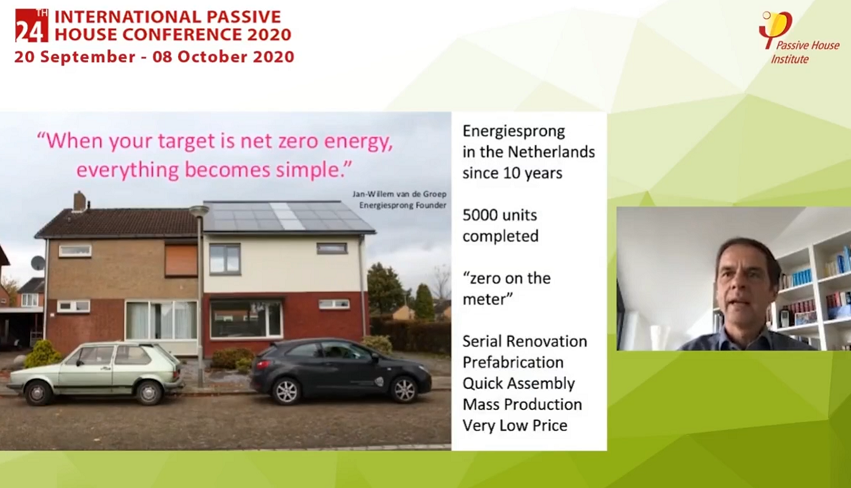
"The savings of heating energy naturally depend on the respective building, especially on its previous consumption. In a typical case, about 75 percent energy can be saved after a complete retrofit to the EnerPHit standard, in some buildings, savings of more than 90 percent may be achieved”, explained Professor Wolfgang Feist, founder of the Passive House Institute. In this regard, serial retrofits using prefabricated building components are receiving increased attention. These allow time-saving and cost-effective modernisation. The architect Stefan Oehler from Berlin presented a future-oriented concept based on the serial retrofit of 12 housing units from the 1930s in Hameln, Germany. The installation of a large insulating element for the façade only took 20 minutes to complete.
Made-to-order solutions for energy efficient construction are also possible, as Marcel Studer and Monte Paulsen from Canada pointed out. For the First Nations residents in the remote territory of the Heiltsuk, they designed a residential Passive House building for the local clinic staff. To optimise the building standard for residential buildings in general, they now provide energy efficiency training to the residents, also in the area of airtightness.
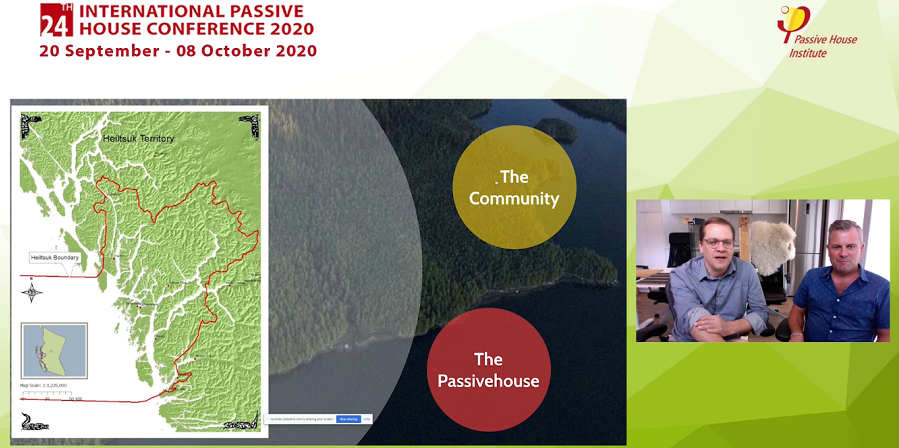
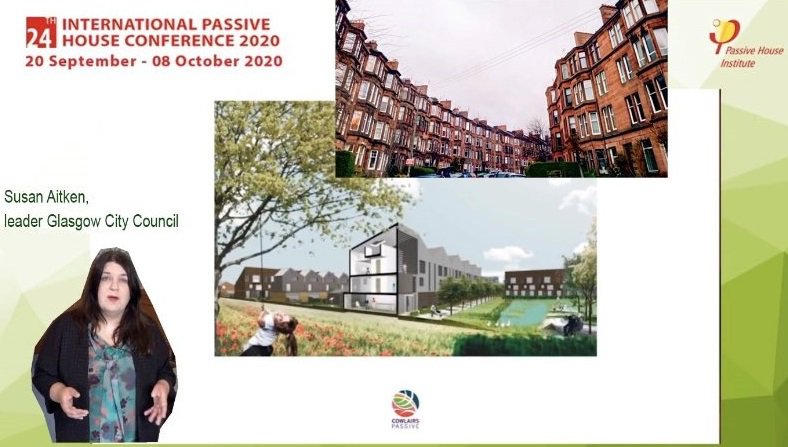
The second key message of the conference: The political framework conditions for energy efficient and climate-friendly construction need to be more stringent. This was also demonstrated by the specifications of the European Union relating to nearly zero energy building (NZEBs). A building constructed to the Passive House standard may save around four times more energy than the respective latest national specifications. With climate protection and a healthy living environment in mind, those wishing to construct or retrofit buildings should therefore go significantly beyond the code requirements, according to the keynote speakers. For the urgently needed energy transition in the building sector, training and further education should be intensified, both in the area of the trades and at the university level.
The virtual version of the specialists' exhibition was also a new feature: here, over 40 exhibitors presented their components for energy efficient construction and retrofits. The exhibition was rated exceptionally well. Additionally, the Passive House Institute offered guided tours through the exhibition in various languages. The Passive House Café was also available via the exhibition. Following the series of lectures, the more than 800 conference participants had the option of meeting each other there. Increasing numbers of participants took this opportunity during the conference to meet old acquaintances again or to make new contacts.
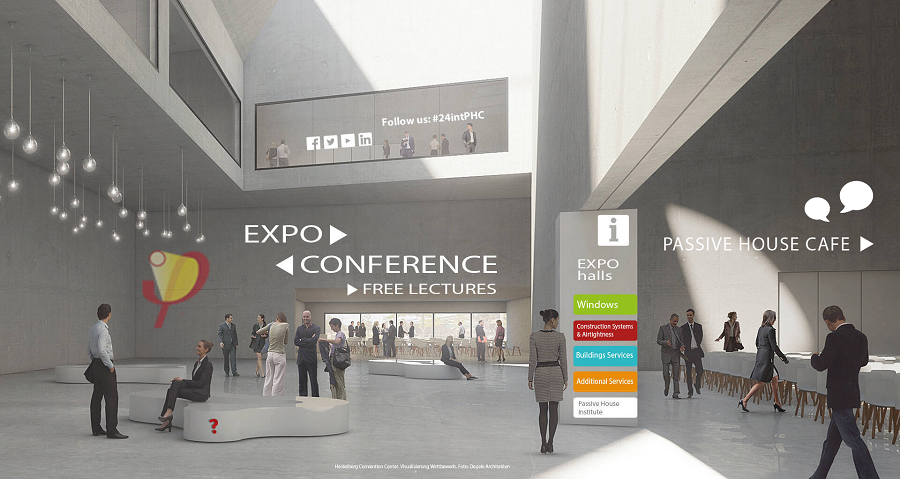
We are happy to announce: In cooperation with the EnergieAgentur.NRW the Passive House Institute is inviting
everyone to Wuppertal in 2021. The 25th International Passive House Conference will take place under the patronage of Professor Dr Andreas Pinkwart, the State Minister for Economic Affairs and Energy of North Rhine Westphalia. The Passive House Award 2021 will also be presented at this conference; contributions for this can be submitted until 1 June 2021. We are looking forward to see you!
